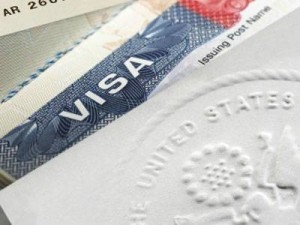Each year there is a frenzy between corporations and small businesses to try and claim their share of H-1B visa approvals in order to onboard and utilize foreign professionals that are college graduates that possess specialized skills. One reason for the annual scramble is that the competition is fierce and the amount of visas issued are limited since Congress has set a maximum for H-1B visa approvals at 65,000 per year and currently allows approval of an additional 20,000 for students.
For companies that want to bring professional foreign workers such as engineers, computer programmers, software developers and other professionals, the H-1B visa is a great opportunity to quickly fill vacancies with highly affordable talent.
Companies such as India-based Tata Consultancy, Wipro and Infosys typically file hundreds of visa applications with United States Citizenship and Immigration Services, as well as U.S. based companies such as Cognizant and CSC, as well as multinational corporations like IBM, Microsoft and Google.
H-1B Visa Approval Process
The highly popular H-1B visa is a temporary, non-immigration visa for foreign workers that occupy “special occupations.” The occupations that fall in the approved category of H-1B require a college degree and specialized skills that are required in the technology, science and engineering fields. The H-1B visa is good for up to three years, and may be renewed. There is a little flexibility in the fields under which an H-1B visa is approved but they all require at least a bachelor’s degree and, in some cases, state licensing. H-1B visas are only considered for companies that have applied and have demonstrated a business need and reason for going overseas to find specialized workers.

The majority of foreign workers that come to work temporarily in the U.S. are from India, a statistic that is reported at 70% of the H-1B recipients according to the U.S. Department of Homeland Security. However, with the H-1B visa, it is the company that applies and sponsors the employee with a restriction of 3 years, with the ability to file only one extension. While the employee may apply for citizenship during that time, they are not guaranteed approval and if there is no change in status the employee must leave the U.S. by the end of the visa period.
Provisions of NAFTA Provides an Alternative Solution
It seems that many companies have overlooked a solution to hiring skilled professional workers closer to home. The North American Fair Trade Agreement (NAFTA) between the U.S., Canada and Mexico allows companies to sponsor workers under the NAFTA Professional (TN) visa. The TN visa allows citizens of Canada and Mexico to enter the U.S. for work at companies in the U.S., including foreign owned companies with a base of operations in the U.S. Unlike the restrictions set with H-1B visas, there is no cap for the number of workers brought in or a restriction on the length of time they can stay for a TN visa. There is still, however, a requirement for the sponsored employee to have a minimum of a bachelor’s degree from a recognized college or university.
For more information regarding the H-1B visa requirements, click here.
For more information regarding the TN visa, click here.

